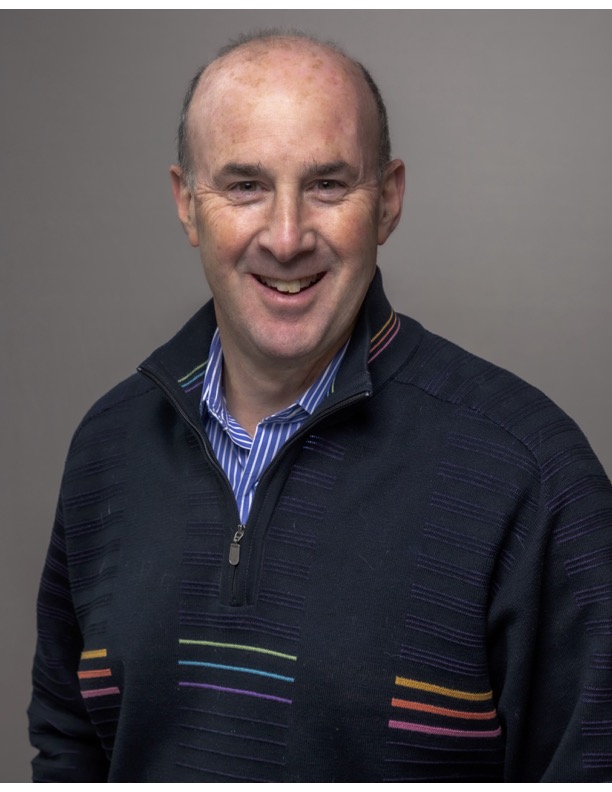Rooted Insights with
Bryan Becker, MD
Bryan Becker, MD
Rooted Insights with Bryan Becker, MD
A New perspective on career development in healthcare
Onward Academic Partners met with Bryan Becker, MD to discuss his administrative and medical leadership background. Dr. Bryan Becker is a nephrologist and certified physician executive working to create and deliver value-driven health care. He currently is a Professor of Medicine at the Anne Burnett School of Medicine at TCU. He previously served as Vice-President of Clinical Integration and Associate Dean for Clinical Affairs at the University of Chicago Medicine. He received his A.B. in English from Dartmouth College and M.D. from the University of Kansas. He is trained in internal medicine at Duke University Medical Center and nephrology at Vanderbilt University Medical Center. Subsequently, he led the nephrology group at the University of Wisconsin, pulling together all features of kidney disease care into a new venture, Wisconsin Dialysis, Inc., building a new faculty base and a robust NIH-funded clinical translational research program. He’s led transformational efforts to re-vitalize organizations, using change management methodology across multiple perspectives of a balanced scorecard before transitioning to his present role.
Bryan served as President and board member of the National Kidney Foundation, leading national and international screening programs and strategic organizational transition, and advises multiple start ups as well as serving as a board member for Forward Health Group, a population health measurement company among many other activities. Bryan and his family reside in the Chicago area.

Dr. Bryan Becker
What is your background in terms of healthcare administration?
I am a nephrologist by training. I started learning administrative roles as the medical director at the University of Wisconsin and then became a section chief and vice chair in the Department of Medicine. Subsequently, I led a large multispecialty practice at the University of Illinois and then was CEO for the University of Illinois Hospital and Clinics before taking on an Associate Dean role and creating a new community medical group and clinically integrated network for the University of Chicago, which I led as President of the UCM Care Network. After that I became Chief Medical Officer for DaVita Integrated Kidney Care and then President of a large multispecialty group at JPS Health Network in Texas prior to taking on another CMO role for VillageMD.
What was it that drew you from clinical care into administration?
My wife was a transplant fellow at UW-Madison and that schedule is frenetic and tough to predict. We wanted to start a family and my transition to administration allowed me to strike a different balance in my schedule. I also learned it was important to have people in administrative roles who understood the daily work and frustrations of those who are not in administrative roles-people who are trying to address varied aspects of the academic mission or take care of a ton of patients. And if you didn’t actually appreciate some of that you weren’t going to be able to create the best environment for them.
What were some of the biggest challenges you encountered as you made that transition?
I tend to be one of those people that goes all in; I was moving at a pace that was very different from some of the people I was working with. I had to readjust expectations around performance and understand how to translate language. It necessitated leadership skills across many domains to make that a smooth and positive transition.
“Find somebody you trust who can be a mentor. People are the most important variable in what we do and if you work at it, you can always find people who are willing to share their time.”
How did you handle those challenges?
There was a lot of self-reflection. I reached out to people outside of my organization for advice. A mentor told me “When leaders stop learning, leaders stop leading.” I spent a lot of time learning basic skills around management, organizational dynamics, finance, and legal and compliance functions. I wanted to understand more about operations and learn how to assess and influence the culture of my organization. With those things in mind, it was easier to ask: how do I look out a little further strategically to lead in the right direction? It’s not just to change management globally, it’s the structured operational processes that make things easier to achieve our goals. And reaching out to smart people in other sectors of industry has been helpful for guidance and links to resources.
Are there any administrative skills you wish you had developed earlier in your career? How did you go about acquiring them?
First, focus. The constant pressures and changing dynamics in the healthcare space can make it hard to concentrate on what is most important.
Second, think hard about the question you’re trying to answer. Then, learn how to put a question on the table for everybody else to answer. The ability to get multiple minds informing strategy and approach is important.
Any other advice would you give to junior faculty members who are thinking about moving into administrative leadership roles?
Find somebody you trust who can be a mentor. People are the most important variable in what we do and if you work at it, you can always find people who are willing to share their time. It is also critical to ask if an administrative role is aligned with your purpose. Taking on administrative roles has many different responsibilities, with varying degrees of joy. Finally, never feel as if you are locked into a path. You can always develop skills, take courses, or shadow somebody who is in a high-level role to learn more.
Any advice for senior leaders in health care systems or medical schools who would like to more actively engage younger physicians in administrative roles?
There are two things that come to mind with this question. When I think about people I have encountered who are exceptional leaders, they’ve been incredibly open and authentic. Great leaders have the ability to understand how to connect across broad audiences simultaneously. Second: bidirectionality. The stuff my kids teach me is massive. Feeling comfortable allowing younger folks to teach senior leaders is a great resource to make your organization better. With younger leaders, you may have to guide them while also clearing the underbrush that gets in their way and giving them enough sunlight and sustenance so they can grow. Taking time as a senior leader to do that work shows interest and engages younger leaders in ways that enhance the organization.

Rooted Insights is an engaging interview series that brings you candid conversations with some of the most dynamic leaders in academic medical administration. Over the years, I’ve had the privilege of learning from and collaborating with these remarkable individuals, and now, we’re sharing their insights and experiences directly with you.
Each interview offers a concise yet impactful perspective on timely and relevant issues in their area of expertise across academic medicine. Whether seeking new ideas, professional inspiration, or development guidance, these conversations are designed to spark your curiosity.
If you’d like to dive deeper, please contact me directly and we can continue the conversation.
Sit back and enjoy this series.

